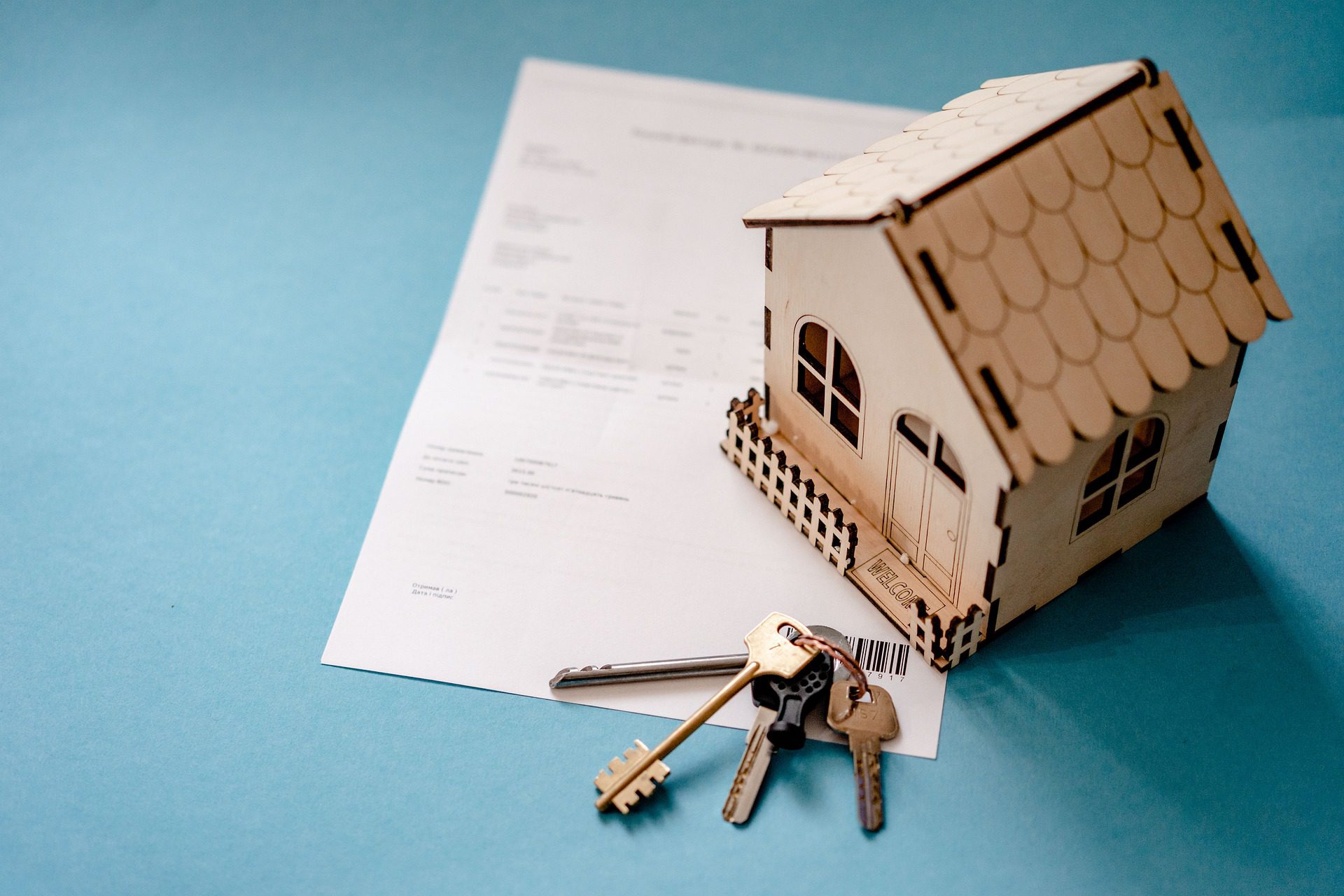
From Fees to Freedom: Richr’s Game-Changing Wealth Strategy in Real Estate, by Jason Rubin, and Glenn Orgin
Have you ever thought about why it costs 6% to…
January 9, 2024
An as-is property doesn’t mean you are doomed. Find out your rights and how to protect yourself when buying an as-is property.
Table of Contents:
What Does ‘as is’ Mean in Real Estate
Meaning of As Is in Real Estate
Seller’s Duty with As Is Real Estate Contract
Frequently Asked Questions (FAQ)
What is as is condition in real estate?
Is it bad to sell a house as is?
What is an as is condition clause?
What does as is in a real estate contract mean?
How do you get out of an as is contract?
Will a bank finance an as is property?
Can you back out of an as is offer on a house?
Can you negotiate an as is home?
Can a buyer back out of an as is contract?
What does as is mean in Florida real estate?
The ‘as is’ residential contract must be used by anybody purchasing or selling ‘as is’ Florida real estate. If that’s the case, you need to be well-versed in a few key details and duties. Assisting you with the paperwork and protecting your sale or purchase by working with an experienced Florida real estate concierge is also suggested. So, let’s get to it – what is an “as is” contract for a home?
People in Florida who sell real estate “as is” mean that it is being sold in the way it stands today. The seller doesn’t have to be worried if the buyer finds a big problem when they look at the house or if the seller tells them about a possible problem. The seller will not have to make any repairs, no matter how big or small they are. As a result, “as is” purchases and sales are very different from traditional transactions, where repairs are often a part of the deal.
Mandatory disclosures about the property, if appropriate, must be disclosed to the buyer under an “as is” residential contract by the seller. A seller can’t hide problems that may need repair work from buyers. The following are included:
Boundary disputes.
When a seller does not wish to do any repairs before closing, they advertise their house for sale as-is. It implies the seller makes no promises that everything is in functioning order and is not obligated to give a Seller’s Disclosure. You are liable for repairs if you purchase an “as is” house and later discover severe issues.
“As-is” home sellers must still comply with federal and state minimum disclosure requirements, which include informing you about hazards like lead paint.
A house sale as is does not always imply that anything is beyond repair. There are a variety of reasons why a seller could want to sell property as-is, even if it has minimal or no flaws. The home seller might be in debt and unable to pay for repairs. The seller may not have the time to wait for a large project to be completed. There are a variety of reasons why a seller could choose to advertise a sale as is rather than fix it.
If you need to move soon and don’t want to do any upgrades, selling as is may be an option. Keep in mind, though, that it’s the equivalent of posting a giant “Everything Must Go!” sign on your property. Sure, you’ll make less money at the closing table than if you did the repairs yourself. However, in some cases, it may be worthwhile.
An as is condition clause signifies it is a fixer-upper that will not be renovated or improved before it is sold. It informs buyers that what they see is what they can expect to get on the closing day. Typically, the house is priced and advertised in such a way that selling property as is goes fast without having to spend any further money on it, and buyers can receive a good deal.
An as is home sale contract does not imply that a buyer waives all inspection contingency rights, nor does it mean that a buyer would acquire the property regardless of what they discover during inspections. Instead, “buy as is” indicates that either the overall state of the property is already accounted for in the purchase price of the home, or the seller will not address any inspection concerns that may occur by performing simple repairs or granting a reasonable credit for the same. Unless they are builders who are just interested in buying the property for the land, most purchasers will perform a variety of inspections.
An as is condition real estate contract is common in the real estate market. For buyers, signing one of these as-is condition contracts indicates that the property is being sold in its current state, and the seller is not expected to make any improvements. Your as is clause in purchase agreement should include a clause that allows you to seek a house inspection prior to concluding the deal. If the inspection reveals several issues, you have the option to back out of the contract and avoid paying for the necessary repairs.
Contracts for an as is sale are a little different from those for home purchases. Buyers who sign an “as-is” sales contract do so with the understanding that an inspection will be conducted before the property is officially theirs if the results are satisfactory. A home inspection is required as part of the selling contract, but the seller is responsible for making any repairs that are found to be necessary. Real estate as-is agreements benefit the seller, whereas residential for-sale agreements benefit the purchaser.
Certain livability characteristics are commonly referred to as “minimum property requirements” in the context of most loan types (MPRs). The as is property will be evaluated by a qualified appraiser to make sure it meets the MPRs before financing an as is house sale.
In a nutshell, yes. The seller receives an earnest money deposit from the buyer with the as is condition when they sign a real estate purchase agreement, binding them to the terms of the deal. This is a way to demonstrate your commitment and seriousness in making an offer on a piece of property. In contrast, contingencies ensure that you will receive your earnest money back in the majority of cases if you back out of an accepted offer.
Contingencies in your offer that indicate when you can back out without penalty will significantly impact the severity of the consequences.
When a seller lists a home for sale as is, the buyer’s legal rights are unchanged, according to the law. The seller must disclose any known concerns with the home being sold as is, and the buyer can continue to make an offer contingent on a real estate inspection prior to closing on the property.
While a buyer has the legal right to cancel a house contract, there may be repercussions. You might, for example, lose your earnest money, which could be worth thousands of dollars – unless your cause for terminating the contract is specified in the contract.
The buyer’s earnest money is used to demonstrate that they are entering the contract in good faith. The funds are kept in an escrow account until the transaction is completed by a third party, such as a title firm.
If you cancel the as is property sale agreement for a reason not specified in the contract, you risk losing your earnest money.
The legal sold as is meaning is that it’s a condition to inform purchasers that they are taking a chance on the home’s quality and the possibility for repairs. The buyer has the right to inspect the house before buying it, but if any concealed flaws are uncovered thereafter, the buyer has no recourse against the seller. In an “as is” transaction, all implicit or stated guarantees that often accompany property for sale are disclaimed.
Property sold as is meaning according to the property sold as is clause in a sales contract; the seller offers no guarantees or claims concerning the condition of a property being sold. When a seller fails to disclose a significant flaw in the property to the buyer, the seller is shielded from liability. The buyer of real estate who includes an “as is” clause is obligated to accept the property in the condition in which he may see it.
A professional or qualified appraiser will conduct a valuation appraisal of your property as part of the home buying or refinance process.
The lender needs an accurate appraisal of the property to make sure it is not offering too much money to the buyer because it is providing a mortgage loan. Both the buyer and seller benefit from an appraisal, as a lower appraisal value than the agreed-upon price may prompt the buyer to restart price negotiations.
An appraiser conducts a physical examination of the property, as well as any necessary research and analysis to meet the lender’s unique needs.
The buyer is responsible for paying the appraisal charge, which can run into hundreds of dollars. If a house is on the market to sell as is, it’s a wise condition to include, along with an inspection, in the purchase agreement.
If a home seller doesn’t have the time or money, they may choose to sell a house as is. For example, if they’re selling house as is on behalf of an elderly relative. Or they don’t know where the house is located. When a homeowner defaults on their mortgage, the bank uses the power of sale to sell homes as is. It’s doubtful that the bank will spend money on repairs in this situation because the property’s condition cannot be guaranteed.
Real estate sold as is in Florida indicates that it is being sold in its existing state. The seller does not need to be concerned if the buyer inspects the property and detects a major problem or if the seller advises them of a potential problem. Regardless matter the severity of the repairs, the seller will not be required to make them. As a result, as is real estate purchases and sales differ dramatically from traditional transactions when repairs are frequently negotiated. Both the buyer and the seller sign a home sold as is residential contract.
An absolute bill of sale is a bill of sale used to transfer or demonstrate title transfer to tangible personal property. This Standard Document can be used as a stand-alone agreement by the parties. This is a bill of sale for products offered “sold as is, where is,” which means that all guarantees are disclaimed unless otherwise stated.
Landlords frequently use the clause “as-is” in leases to limit their liability for unfinished areas of the property. It might indicate that there are no appliances, that the pool is broken, or that the walls and other surfaces are incomplete and may remain thus.
However, utilizing “as-is” to avoid complying with Florida Statutes, which compel a landlord to follow all applicable building and housing standards at all times, is not permitted.
Buyers can benefit from buying their dream home in their price range if it needs a few repairs. Finding an as-is gem can save you thousands of dollars when you submit your offer through Richr. You’ll receive 2% cashback on your home purchase or list your as-is property for free on MLS. Better home solutions are made possible with care by Richr.

If you want the Richr team to help you save thousands on your home just book a call.
 Book a call
Book a call